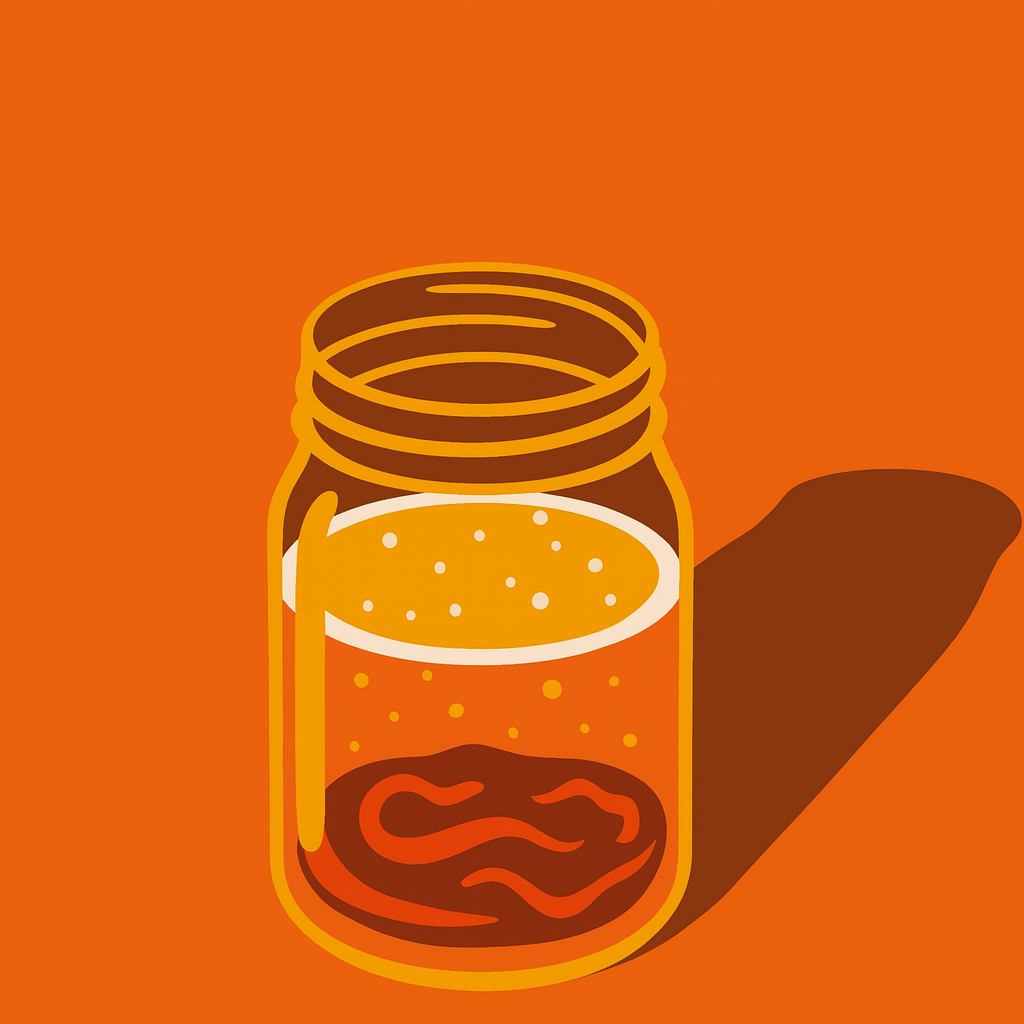We have all had the post-meal bloat. You know? The kind of bloating that makes it hard to wear your favorite pair of jeans (aka: the pair you’ll have to unbutton after your last bite). It’s no wonder so many people are searching for natural ways to beat the bloat, and by surprise, kombucha is one of the best natural ways to help. In this article, we’ll explore how kombucha actually helps with bloating relief, how to use it smartly, when it might cause more discomfort, and how to choose the best kombucha drinks for gut support. If you’ve ever felt bloated and reached for a fizzy bottle of fermented tea, this one’s for you.
What is bloating, and why does it happen?
Bloating is that too-full, swollen feeling in your belly — often caused by excess gas or disrupted digestion. It can make you feel sluggish, very uncomfortable, and almost as if you aren’t yourself. Common reasons that bloating occurs could be from eating a poor diet (ultra-processed snacks and heavy fats), eating too fast, hormonal shifts, food sensitivities, and even stress. One of the biggest drivers? Imbalanced gut bacteria.
That’s where fermented drinks like kombucha come into play. Kombucha for bloating relief has gained popularity thanks to its live probiotic cultures, which are thought to help balance the gut microbiome. While it’s not a miracle cure, the right kombucha can support smoother digestion and offer a gentler way to beat the bloat. It’s also a smart choice for those with an active lifestyle looking for digestive balance.
How can kombucha help with bloating?
So, does kombucha help with bloating? The answer: it can. Thanks to its probiotic content, kombucha may help support a more balanced gut, which plays a key role in reducing gas and bloating. These probiotics and antioxidants may improve digestion by helping break down food more efficiently and encouraging a healthy balance of gut flora. For some people, drinking kombucha regularly (in moderation) leads to less frequent bloating and a lighter, more comfortable belly.
In simple terms, kombucha is a fermented tea made by brewing black or green tea with sugar and a SCOBY (symbiotic culture of bacteria and yeast). During fermentation, the sugar is mostly consumed, leaving behind a tart, slightly fizzy drink rich in beneficial bacteria and organic acids.
Of course, results vary. While kombucha can help with bloating for many, others might find the benefit mild.
Can kombucha cause bloating?
If you’re wondering if kombucha causes bloating, the answer is: sometimes, yes — particularly if you drink too much or if your gut isn’t used to probiotics. Kombucha isn’t a guaranteed win for everyone. Because it’s naturally carbonated, drinking too much kombucha too quickly can actually cause bloating, not relieve it. If you have a sensitive stomach, then you may want to introduce this fermented drink slowly and in small amounts! Everyone’s tolerance is different, so start by sipping a small serving (about 4–8 ounces) and give your body time to adjust.
How much kombucha should you drink for bloating relief?
Most nutrition experts suggest sticking to about 4 ounces per day — that’s roughly one small bottle.
Pro tip: drink kombucha with meals or a light snack to help digestion and reduce the risk of an upset stomach.
Remember, more isn’t always better. It’s tempting to chug a whole bottle if you love the taste, but if your digestive system is on the sensitive side, start with half a serving and slowly increase as your gut adapts. Always choose a quality brew with low sugar and gentle carbonation!
Tips to get the most digestive benefits from kombucha
Start by drinking it alongside a balanced diet rich in fiber, fruits, and vegetables — all of which naturally support healthy digestion. You can also pair your kombucha with light meals rather than heavy, greasy ones to avoid overloading your digestive system.
Drinking plenty of water throughout the day will also help minimize bloating and support the probiotic benefits of kombucha. Kombucha may not replace water as one of the best drinks for hydration, but it can be a flavorful option to complement your fluid intake. Every gut is different, so pay attention to what works best for you. With these tips and a bit of time, you’ll realize that kombucha is good for bloating!
FAQs about kombucha and bloating
Can kombucha help with bloating quickly?
For some people, yes — a small serving of kombucha may ease mild bloating within an hour or two. However, long-term benefits often come with consistent use over days or weeks.
Does kombucha cause bloating in everyone?
Not necessarily. Some people feel bloated from carbonation or sugar in certain kombucha brands, while others tolerate it well. Starting with small amounts is the best way to test your personal tolerance.
What’s the best kombucha for digestion?
Look for a kombucha with live cultures, low sugar, organic ingredients, and light carbonation. Flavors like ginger or lemon are great for digestion, and avoiding artificial sweeteners can help minimize bloating. A clean, simple brew is usually your best bet.
Sources
- Professional, C. C. M. (2025, April 25). Bloated stomach. Cleveland Clinic. https://my.clevelandclinic.org/health/symptoms/21740-bloated-stomach
- Dysbiosis. (2025, June 2). Cleveland Clinic. https://my.clevelandclinic.org/health/diseases/dysbiosis
- Professional, C. C. M. (2025b, May 9). Probiotics. Cleveland Clinic. https://my.clevelandclinic.org/health/treatments/14598-probiotics
- Clinic, C. (2025, June 17). Everything you need to know about antioxidants. Cleveland Clinic. https://health.clevelandclinic.org/what-do-antioxidants-do
- What is a SCOBY? | You Brew Kombucha. (n.d.). Youbrewkombucha. https://www.youbrewkombucha.com/what-is-a-scoby
- Cuomo, R., Sarnelli, G., Savarese, M. F., & Buyckx, M. (2009). Carbonated beverages and gastrointestinal system: between myth and reality. Nutrition, metabolism, and cardiovascular diseases : NMCD, 19(10), 683–689. https://doi.org/10.1016/j.numecd.2009.03.020
- Unexplained Severe Illness Possibly Associated with Consumption of Kombucha Tea -- Iowa, 1995. (1995, December 8). https://www.cdc.gov/mmwr/preview/mmwrhtml/00039742.htm
- How to add more fiber to your diet. (n.d.). Mayo Clinic. https://www.mayoclinic.org/healthy-lifestyle/nutrition-and-healthy-eating/in-depth/fiber/art-20043983
